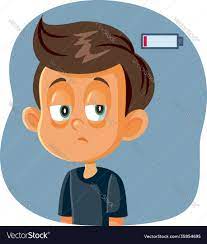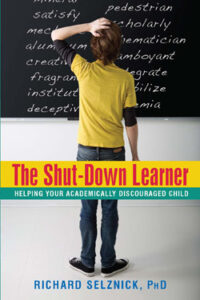
“oomph” noun Informal: energy; vitality; enthusiasm.
I don’t know how to describe it in more clinical or scientific terms, but there are a bunch of kids I’ve assessed recently who seem to me to lack “oomph.”
While “oomph” may be one of those words that are not currently in modern usage, I think it conveys an important issue not often discussed.
With a low level of “oomph,” the child comes across with low-energy and very little “push” behind them and the tasks they are asked to complete. Typically, parents will be checking the boxes that say things like, “lacks sustained mental effort,” “inattentive,” “easily distracted.”
With these children, I think of them as having a low “OQ,” (i.e., “”Oomph Quotient”).. While not very scientific I understand, but that’s what it feels like when I’m with them.
Let’s take Blaze, an 8 year old whose parents are worried about how he conducts himself in his day-to-day life.
When I meet Blaze I do my best to connect with him, but he’s not buying what I’m selling. Giving me a half-hearted (“must I do this”) fist bump with a meager smile as a starting point, he conveys that he can’t wait to be out of there.
When the assessment starts I ask Blaze to write down three things that he likes to do. Instead of writing, he says something in a mumble like, “I don’t like to do too much – video games.” (Nothing gets written down.)
Later, on a task where I have Blaze to copy different shape and designs on the page and to put blocks together in patterns, he goes through the motions, but there is no attempt to correct himself when a design or block pattern is obviously wrong.
The sense is that the only thing on Blaze’s mind that matters to him is getting done with this annoyance, probably so he can go back to his screen time at home or on the phone that his parents have given him on his birthday (with no strings attached).
It would be one thing if what was observed was unusual for Blaze, a function of not liking me or the assessment situation, but this type of thing occurs consistently and his parents are getting their buttons pushed by it. (Teachers also comment on the low energy.)
Certainly, many kids with low “oomph” are diagnosed as ADHD – of the inattentive variety – but my sense is that it is deeper than we are owning and understanding and a fairly complex issue.
To my knowledge there is no easy fix to remedy low “oomph.””
A good first step is to recognize it for what it often is – a total disinterest in anything beyond what is giving the child pleasure (which usually comes in the form of a screen).
Once it is recognized for what it is, honest conversations can take place between parent and child about what the low “oomph” means and how much of a problem it is becoming.
Starting to link up very important messages that questions the free access to screen pleasure would be a good next step.
The child has to start understanding the basic formula of “you give and you get,” as the child is typically stuck in “you don’t give and you still get.”
While this may not move the “OQ” needle significantly, it may move it enough to get the child more in the game.
(***Please note: All blogs represent the opinion and perspective of Dr. Richard Selznick. Comments and questions are welcomed, but are blocked by the hosting site. Please email questions or comments: rselznick615@gmail.com)
 Copyright, Richard Selznick, Ph.D. 2022, www.shutdownlearner.com.
Copyright, Richard Selznick, Ph.D. 2022, www.shutdownlearner.com.
To Contact Dr. Richard Selznick for advice, consultation or other information, email rselznick615@gmail.com.
To receive future blog posts, register your email: https://shutdownlearner.com.
